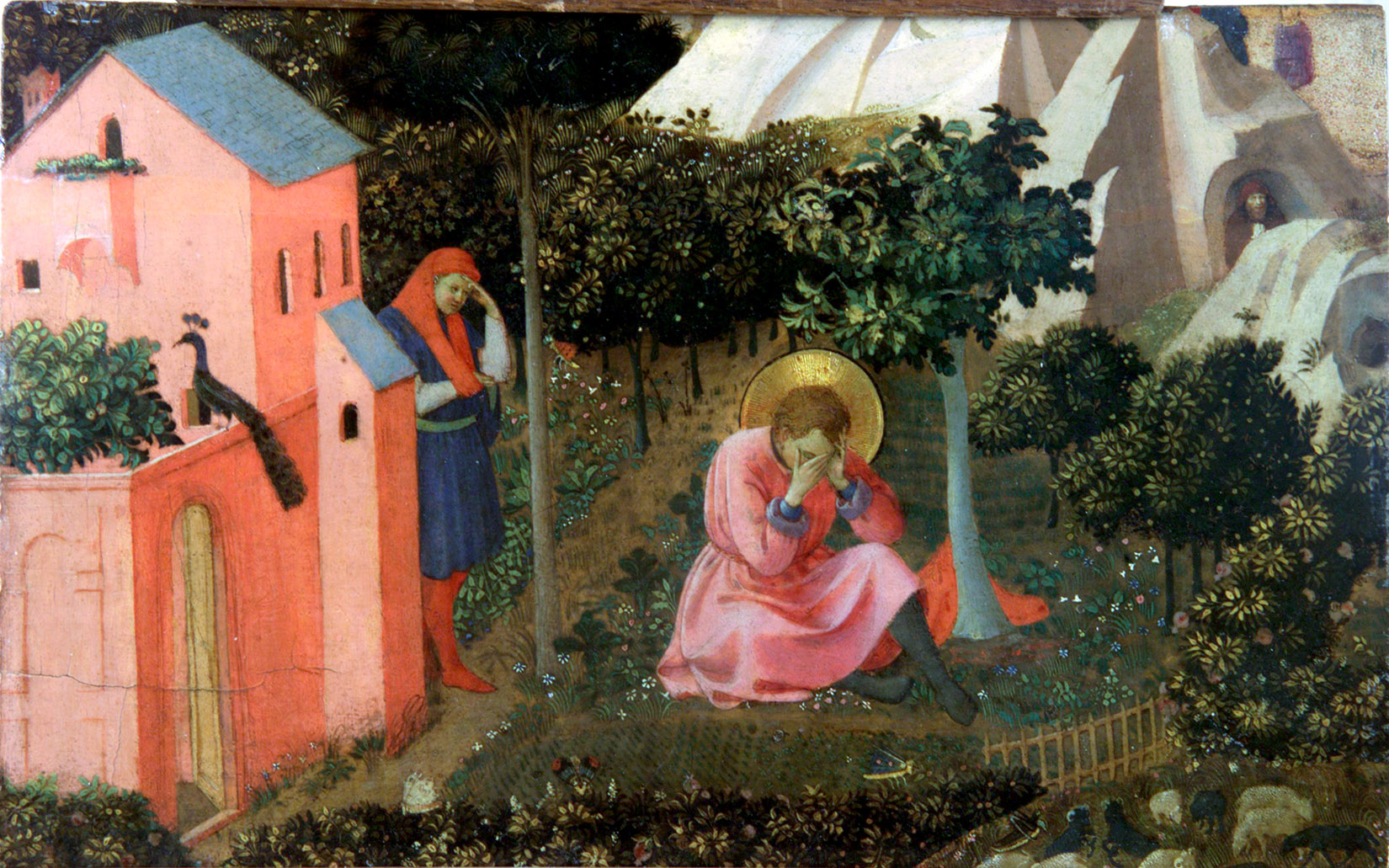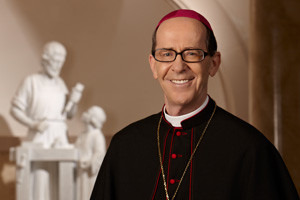
Second in a Series
Friendship with Jesus does not begin with our human initiative. It begins with Him. “Before I formed you in the womb, I knew you,” He tells us (Cf. Jer 1:5), “before you were born I dedicated you.” His plan for our lives and His grace undergird all that we are and all that we do. His providence goes ahead of us and His mercy follows behind. Still, He respects our freedom completely, never forcing us to accept any part of His plan. If we reject His teaching, even if it is as foundational as the Eucharist, He allows us to walk away as did the vast crowd beside the Sea of Galilee. We are free to walk away but He longs for us to come to our senses and return to Him again. We are never beyond the reach of His mercy.
The Painfully Slow Way of Conversion

When we accept Jesus’ invitation, “Come and follow Me” (Mt 4:19, Mk 1:17), He leads us along a way that changes us, altering not only our thinking but also our reasoning and desiring. We discover, as we follow our Master, that turning away from selfishness and putting on the mind of Christ can be painfully slow. The conversion God wants for us is not just a minor adjustment in life, not just to eliminate a bad habit. When Jesus calls us to discipleship, He is asking something much greater, namely to adopt His way of thinking, acting, loving and living. He wants to transform us into other Christs.
Therefore, conversion is not a “once and you’re done” event. While it is true that all people have been saved by Jesus’ sacrifice on the Cross, not everyone has accepted His saving grace. The willingness of us disciples to surrender to the fire of His love frequently moves at a snail’s pace.
As we fly to the Lord for refuge, we wish we could, without hesitation, “put off the old man and put on the new” (Eph 4:22ff, Col 3:9f), become perfect in holiness in an instant and not find ourselves stumbling along the slower and humbling route of ongoing conversion. But, for good reason, Jesus taught us to ask our heavenly Father for “daily bread” and to say, even more often, “forgive us our trespasses as we forgive those who trespass against us.” By God’s design, virtues are forged one day at a time, and so are friendships, even with the greatest Friend of all.
EN ESPAÑOL: El discipulado: Conversión constante en nuestro camino de fe
Freed by God’s Word
The conversion of St. Augustine took years to come about. It began with the tears and prayers of his mother, St. Monica, who never ceased to beg God for the conversion of her brilliant but wayward son. The preaching of St. Ambrose, bishop of Milan, broke through the thicket of rationalizations that Augustine had foolishly planted around his heart. No matter how stubbornly he gripped the false reasoning that shored up his pride, Ambrose’s words and particularly his virtue began to make chinks in the armor Augustine had built around his soul.
The day came, finally, when the word of God, like a two-edged sword, laid bare the falsehoods to which He was clinging and flashed the light of truth into the dark recesses of his soul. The voice of a child who said, “Take and read,” moved Augustine to seek truth in the Sacred Scriptures. Once he had tasted the truth, his soul thirsted for more and more. He had discovered that a change of mind and heart needed to be prepared by prayerful reading of the word of God.
When Augustine reflected on his conversion, years later, it seemed as if he had awakened from a long slumber; finally coming to his senses, he discovered the splendor of truth as something far brighter than he had ever imagined.
Another great convert, St. Paul the Apostle wrote (Rom 13:11f), “It is the hour now for you to awake from sleep. For our salvation is nearer now than when we first believed; the night is advanced, the day is at hand. Let us then throw off the works of darkness and put on the armor of light.”
The Foolishness of the Cross
The greatness of Jesus’ love is revealed by the weakness He humbly embraced in His Incarnation and the shameful death that He endured on the Cross. The all-powerful Son of God revealed His Father’s love by emptying Himself of glory. He was “conceived by the Holy Spirit, born of the Virgin Mary, suffered under Pontius Pilate, was crucified, died and was buried.”
It should not surprise us, then, that the criteria that the Lord uses in calling His disciples also contradicts the standards of the world. As St. Paul writes (1 Cor 1:27ff), “God chose the foolish of the world to shame the wise, and God chose the weak of the world to shame the strong, and God chose the lowly and despised of the world, those who count for nothing, to reduce to nothing those who are something, so that no human being might boast before God.”
The ongoing way of conversion on which Jesus leads His chosen ones follows a similar pattern. To grow in holiness we must acknowledge our sinfulness. To walk in the light of Christ, we must confess the darkness in our own hearts; to be renewed in His mercy, we must say with all honesty, “Lord, I am not worthy that you should enter under my roof, but only say the word and my soul shall be healed.” The way to holiness for Jesus’ disciples is the Beatitudes for, indeed (Mt 5:3), “Blessed are the poor in spirit, for theirs is the Kingdom of heaven.”






